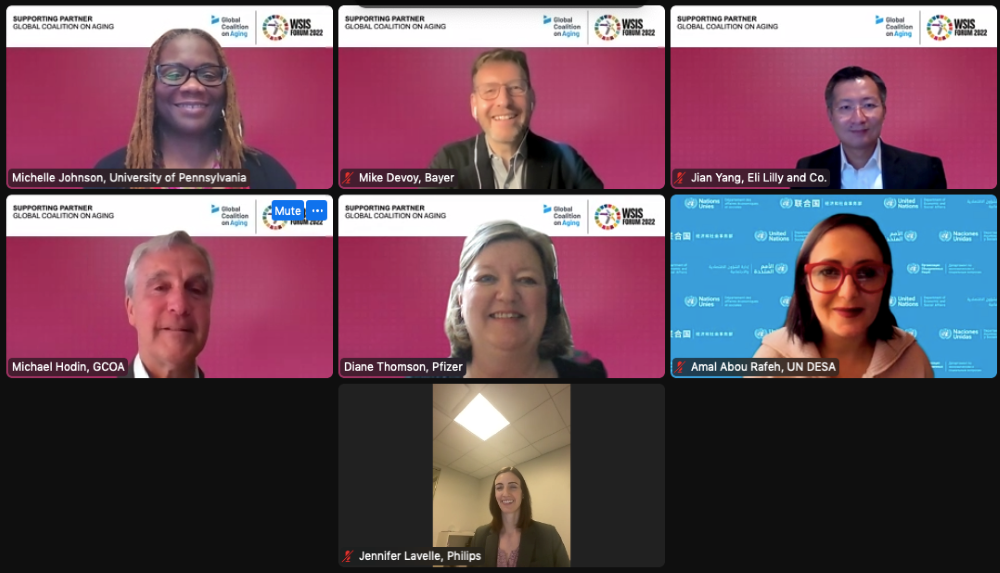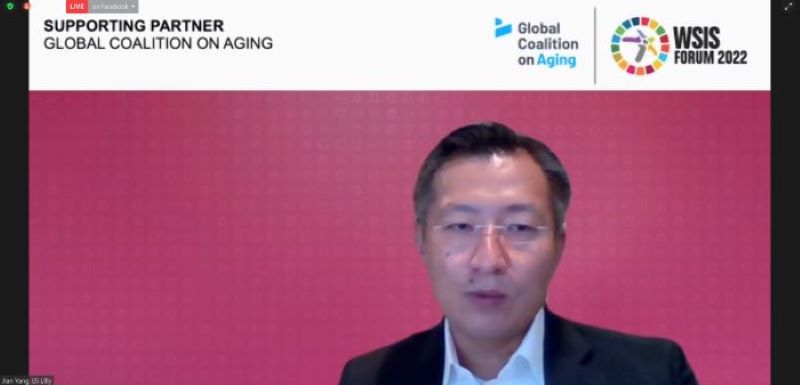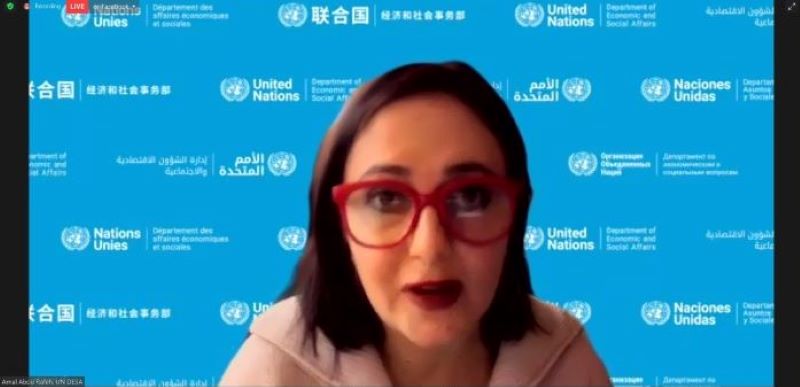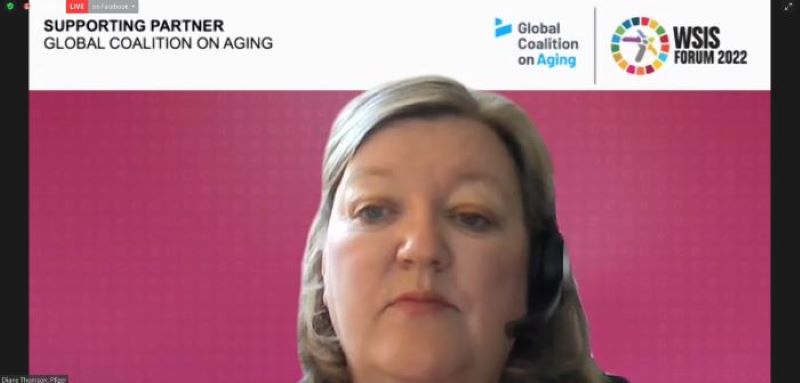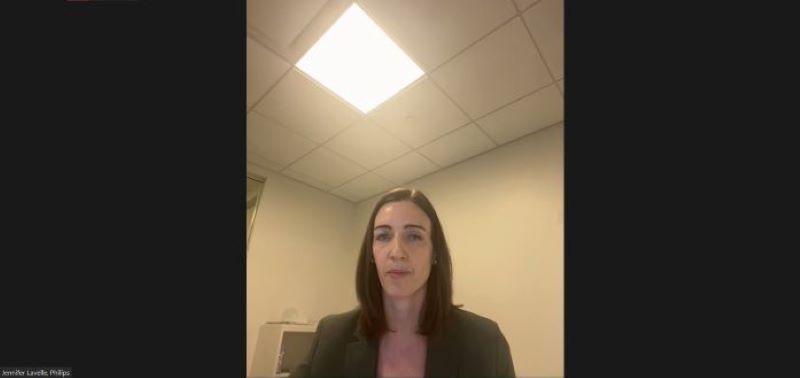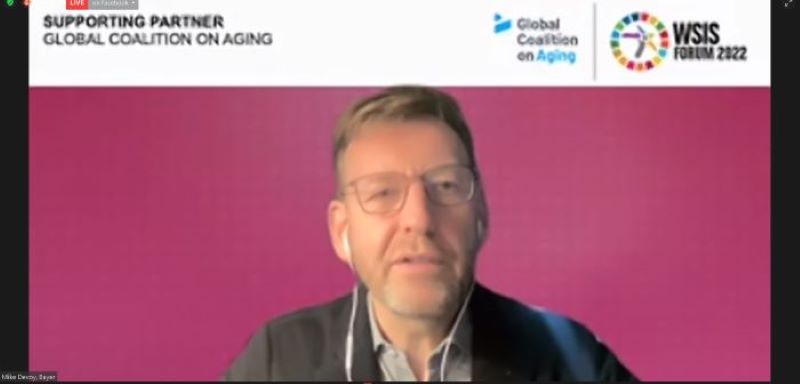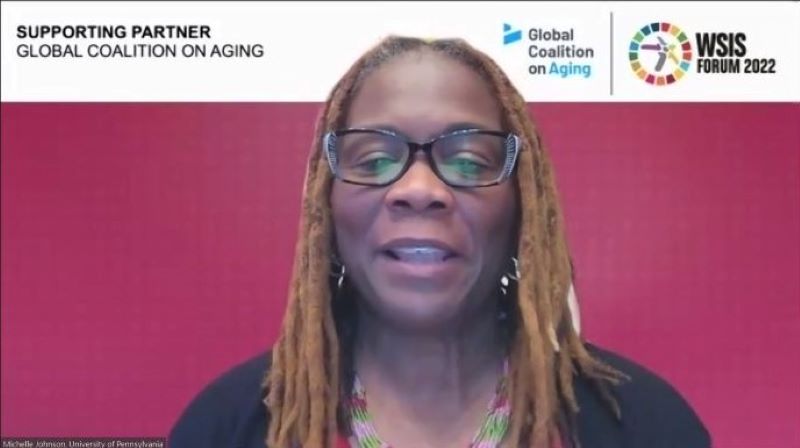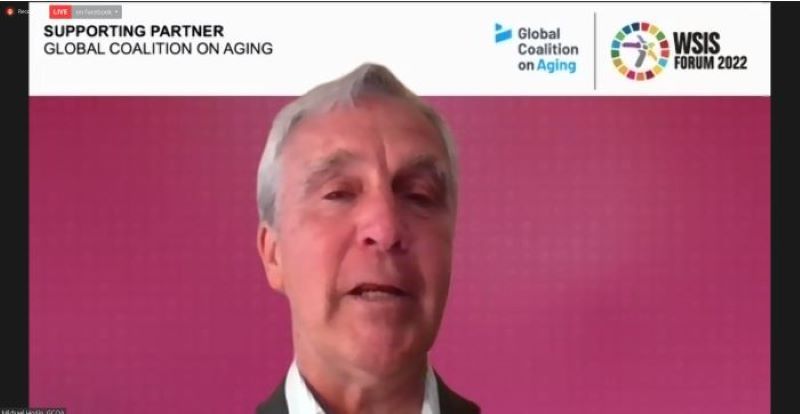Tech Solutions for Age-Related Diseases
Global Coalition on Aging
Session 256
Vaccines, new medicines, diagnostics, in-home care, and more detailed and sophisticated clinical trials that bring drugs to those who need them faster and more efficiently are all being helped by tandem developments in technology. How are digital innovators tackling the diseases and conditions that increase in prevalence with age, including vision impairment, cardiovascular disease, osteoporosis and fragility fractures, cancer, dementia and other neurological disorders, and communicable diseases that place older adults at high risk, such as influenza, shingles, pneumococcal pneumonia, and COVID-19? How is achieving the goals of the Decade of Healthy Ageing uniquely connected to technology innovation?

A physician by training with extensive experience in R&D, medical and commercial areas, Dr. Yang has keen understanding of the issues, challenges and opportunities in healthcare system and pharmaceutical industry. Dr. Yang is passionate about leveraging digital technology to drive healthcare transformation and deliver better outcome. He is a result driven leader with global vision and career footprints in many countries - US, China, Japan and Singapore.
Currently, Dr. Yang leads teams that are composed of physicians, biomedical engineers and data scientists to develop Lilly’s capabilities in Digital Health across therapeutic areas. He has leadership oversight for digital biomarkers (dBMs), behavioral coaching and digital therapies.
In his previous roles, Dr. Yang was responsible for Eli Lilly's Connected Care technology portfolio including software as a medical device, cloud services and big data analytics. He had responsibility in driving commercial transformation for Business Units through holistic digital strategies and technology innovation. He had also established Integrated Genomics Platform for Cancer Research at Lilly Research Labs.
Before joining Lilly, Dr. Yang led the effort in designing and managing HIPPA compliant medical informatics system for medical and epidemiological researches in collaboration with WHO and US Centers for Disease Control and Prevention.
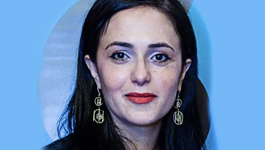
Amal Abou Rafeh is Chief of Programme on Ageing Unit at the United Nations Department of Economic and Social Affairs in New York. She serves on the Secretariat of the General Assembly's Open-ended Working Group on Ageing and is a member of
the Steering Committee of the Titchfield City Group on Ageing- related Statistics and Age-disaggregated Data.
Amal joined the United Nations in 2001, working in the areas of social policy, sustainable development, and demography, and served on the Secretariats of the
World Summit on Sustainable Development (2002) and the High-level Meeting on Youth (2011). She held positions in Beirut and New York. Before joining the United Nations, Amal lectured and taught on analysis of social and demographic data.
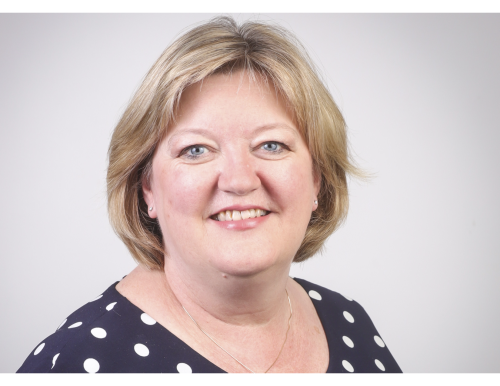
Diane is a very experienced public affairs professional whose current role is Senior Director Vaccines Public Affairs in the Global Policy & Public Affairs team at Pfizer. Diane’s responsibilities include the adult vaccines portfolio, which includes respiratory diseases such as COVID-19, Pneumococcal Pneumonia, RSV as well as the meningococcal portfolio which has vaccines across the life course. In addition, Diane co-chairs the IFPMA Task Force for Life Course Immunisation. Diane represents public affairs on the International Developed Markets Vaccines Leadership Team.

As head of Global Business Marketing for Philips Ambulatory, Monitoring and Diagnostics, Jennifer Lavelle brings over 20 years of healthcare expertise to drive the transformation of care to become more decentralized and virtual by connecting data across the patient ecosystem. Shifting care from in the hospital to anywhere, episodic to continuous, reactive to proactive, condition specific to holistic.
Jennifer is passionate about problem solving and advocating to address and improve critical topics in healthcare specifically around social determinants of health and healthy aging.
Jennifer holds an MBA in Marketing and Managing Human Capital from Saint Joseph’s University and a Bachelor of Science in Business Administration from Bucknell University.
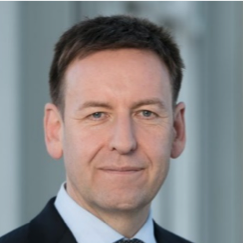
Dr. Michael Devoy is the Executive Vice President for Medical Affairs and Pharmacovigilance for the Pharmaceuticals Division at Bayer AG. He is also the Chief Medical Officer of Bayer AG. Dr. Devoy joined the former Schering AG in 2005 as Senior Vice President of Global Medical Development and was appointed to his current position in 2014.
Dr. Devoy studied Medicine and Pharmacology at University College London and graduated with a Bachelor of Medicine/Bachelor of Surgery (MB, BS). He is a member of the Royal College of Physicians in London. Dr. Devoy has extensive experience across Clinical Development and International Medical Affairs. His career in the pharmaceutical industry began when he joined Glaxo Group Research in Clinical Pharmacology.
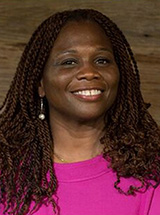
Dr. Michelle Johnson, Associate Professor of Physical Medicine and Rehabilitation, Perelman School of Medicine, University of Pennsylvania. Dr. Johnson’s research is mainly in the area of robot-mediated rehabilitation. She is focused on the investigation and rehabilitation of dysfunction due to aging, neural disease, and neural injury. She is particularly interested in 1) exploring the relationships between brain plasticity and behavioral/motor control changes after robot-assisted interventions; 2) quantifying motor impairment and motor control of the upper limb in real world tasks such as drinking; and 3) defining the methods to maintain therapeutic effectiveness while administering local and remote, robot-mediated interventions.
Dr. Johnson directs the Rehabilitation Robotics Lab. This is a new Lab within the Department of Physical, Medicine, and Rehabilitation in the Perelman School of Medicine. The Rehabilitation Robotics Lab mission is to use robotics, rehabilitation and neuroscience techniques to translate research findings into the development of assistive and therapeutic rehabilitation robots capable of functioning in real-world rehabilitation environments. Their goal is to improve the quality of life and function on activities of daily living (ADLs) of our target population in supervised or under-supervised settings.
-
 C2. Information and communication infrastructure
C2. Information and communication infrastructure
-
 C3. Access to information and knowledge
C3. Access to information and knowledge
-
 C7. ICT applications: benefits in all aspects of life — E-health
C7. ICT applications: benefits in all aspects of life — E-health
-
 C10. Ethical dimensions of the Information Society
C10. Ethical dimensions of the Information Society
-
 Goal 3: Ensure healthy lives and promote well-being for all
Goal 3: Ensure healthy lives and promote well-being for all
-
 Goal 16: Promote just, peaceful and inclusive societies
Goal 16: Promote just, peaceful and inclusive societies
